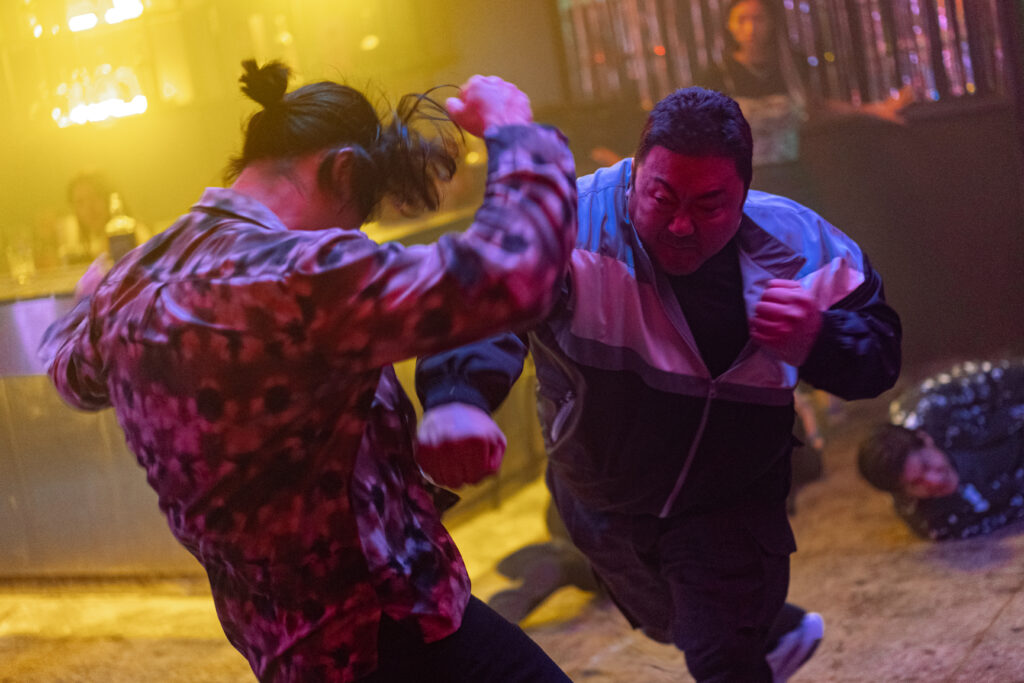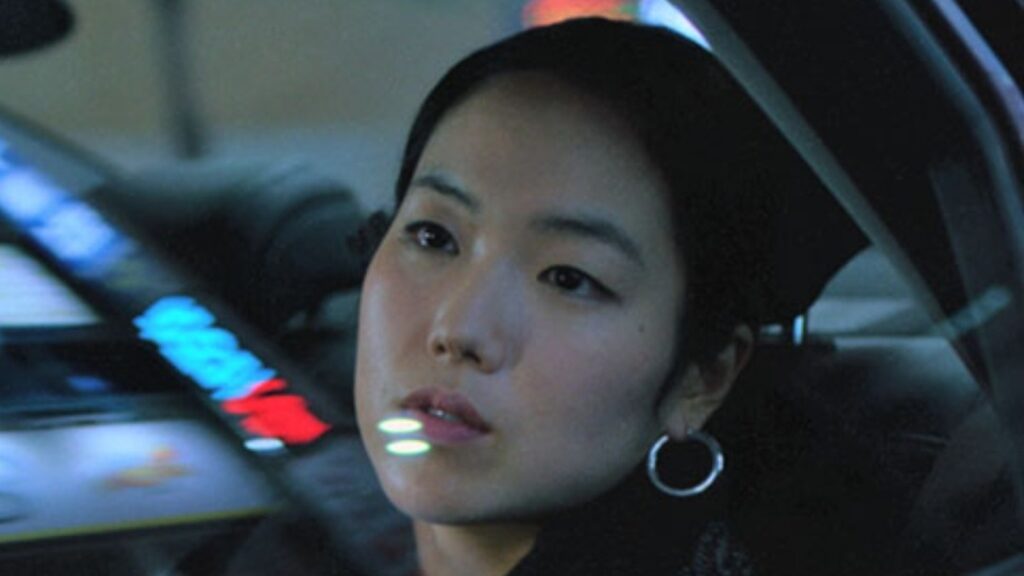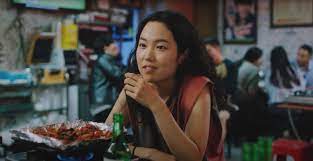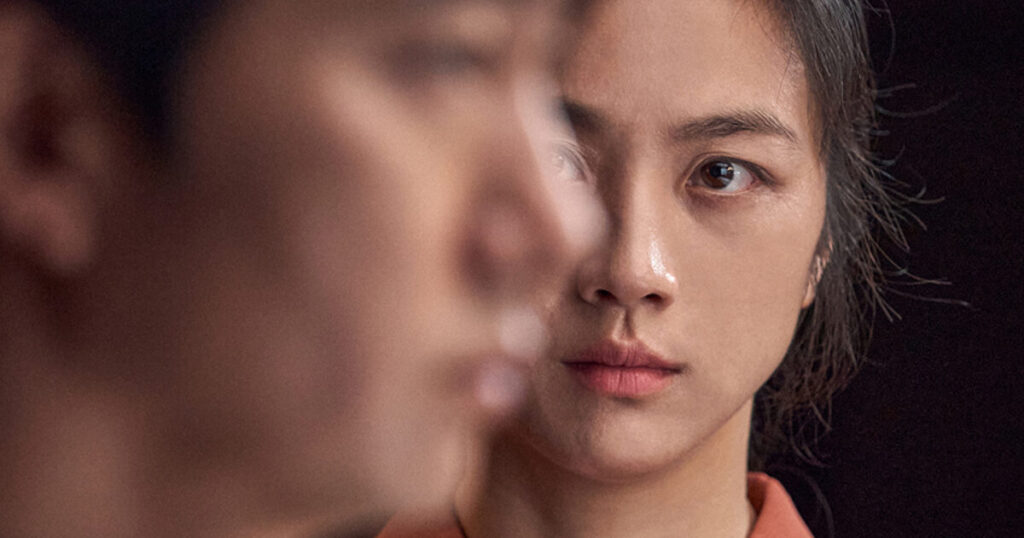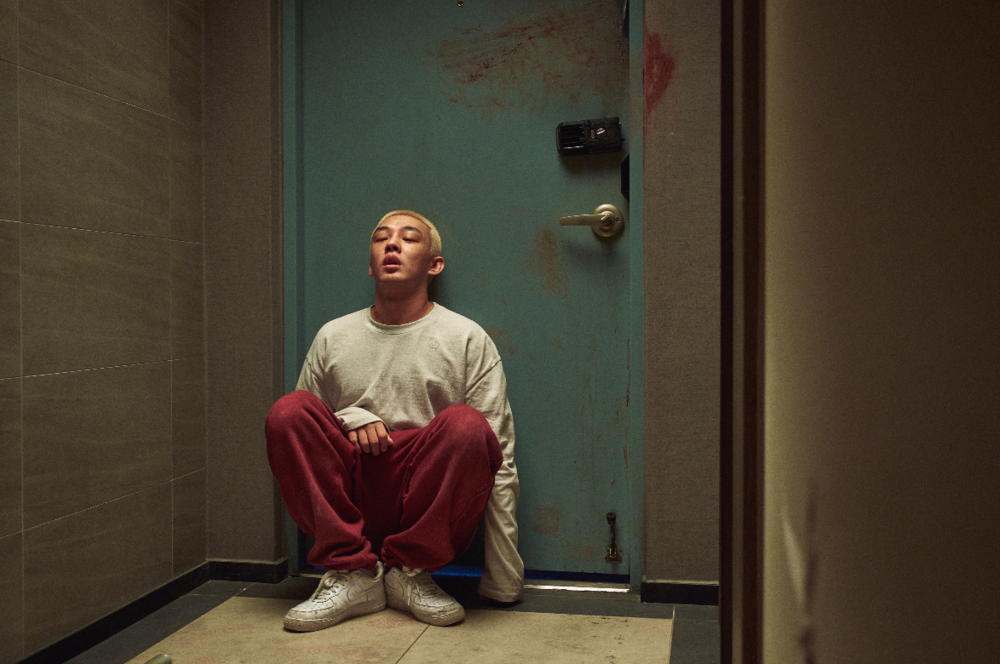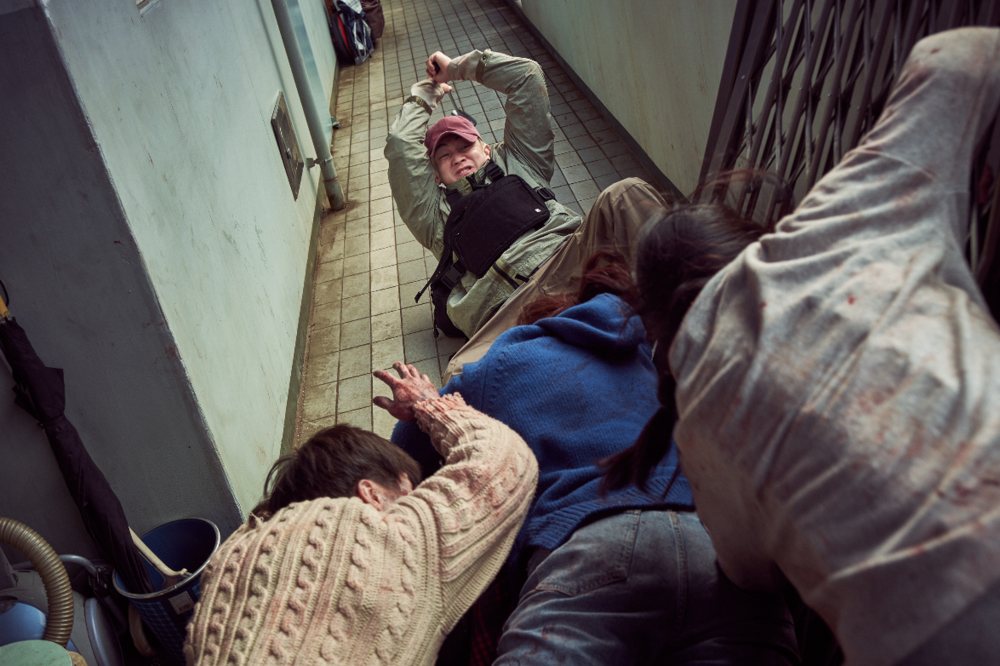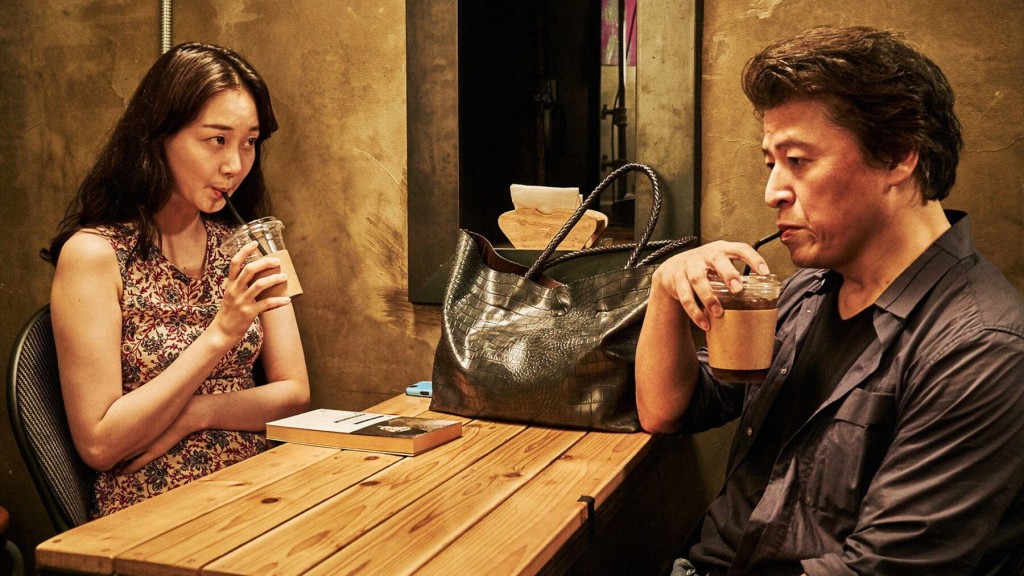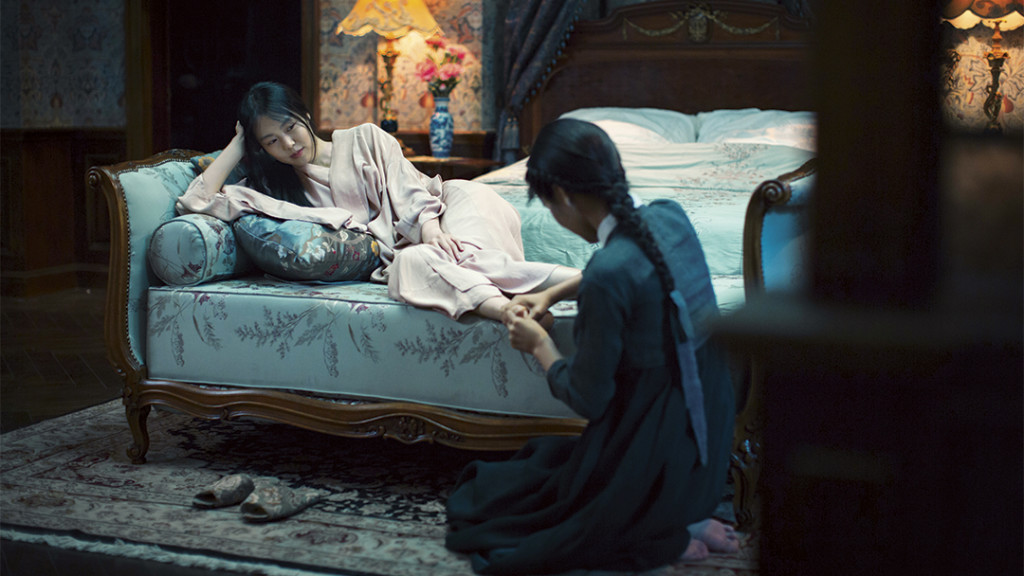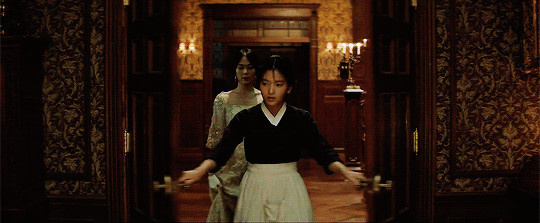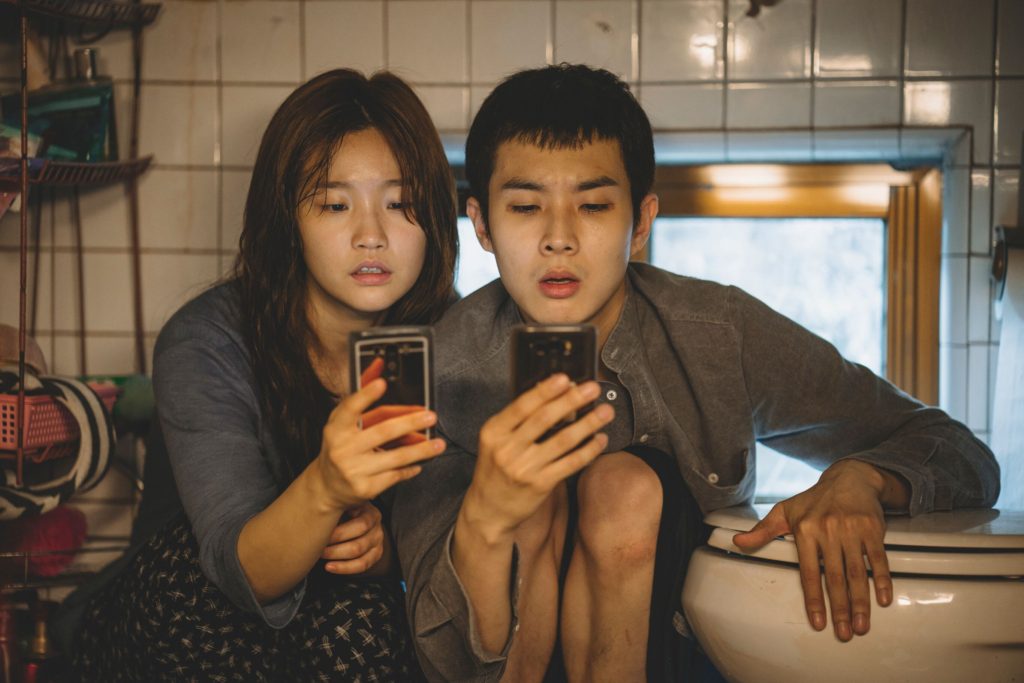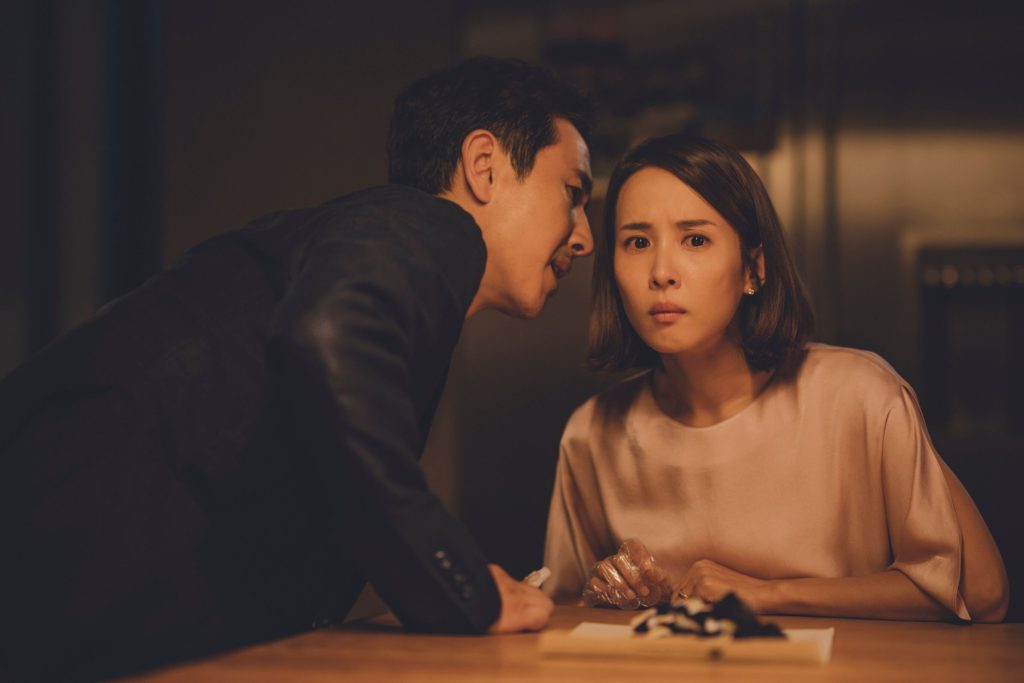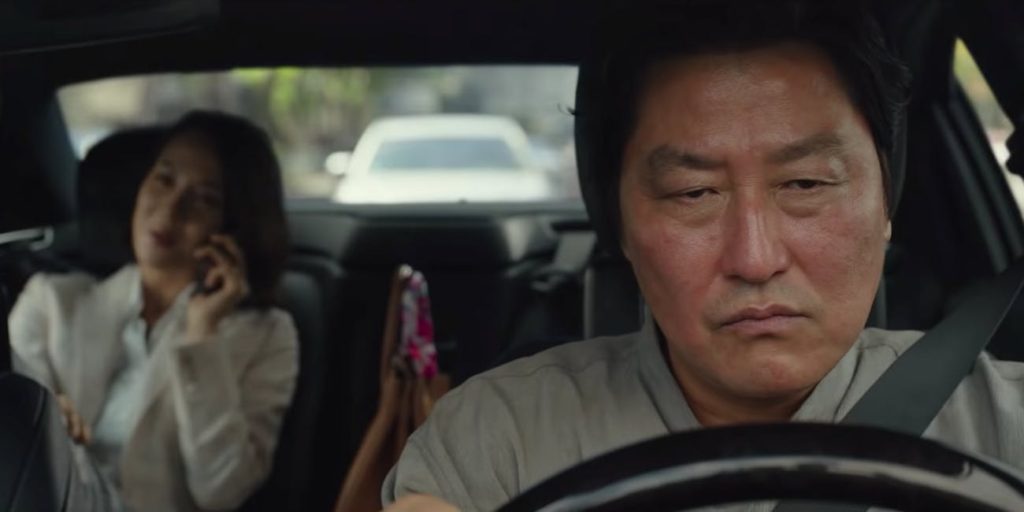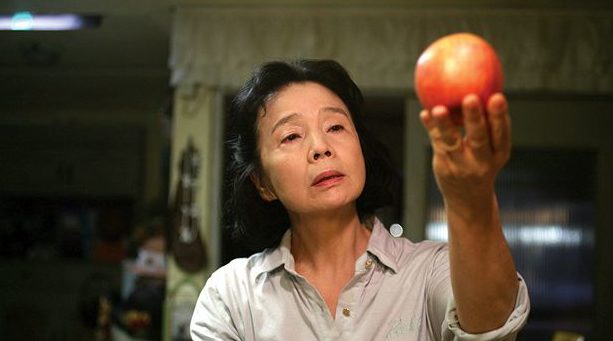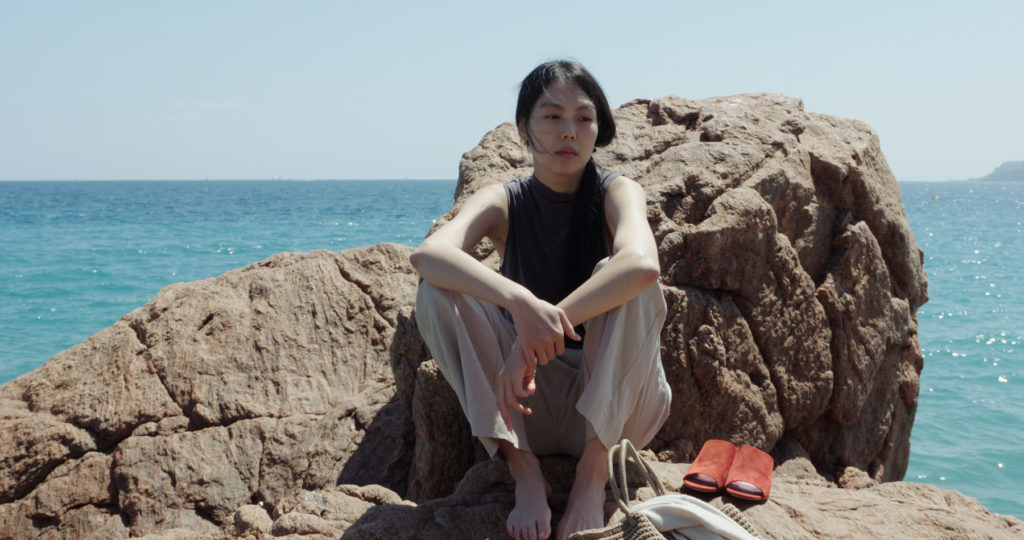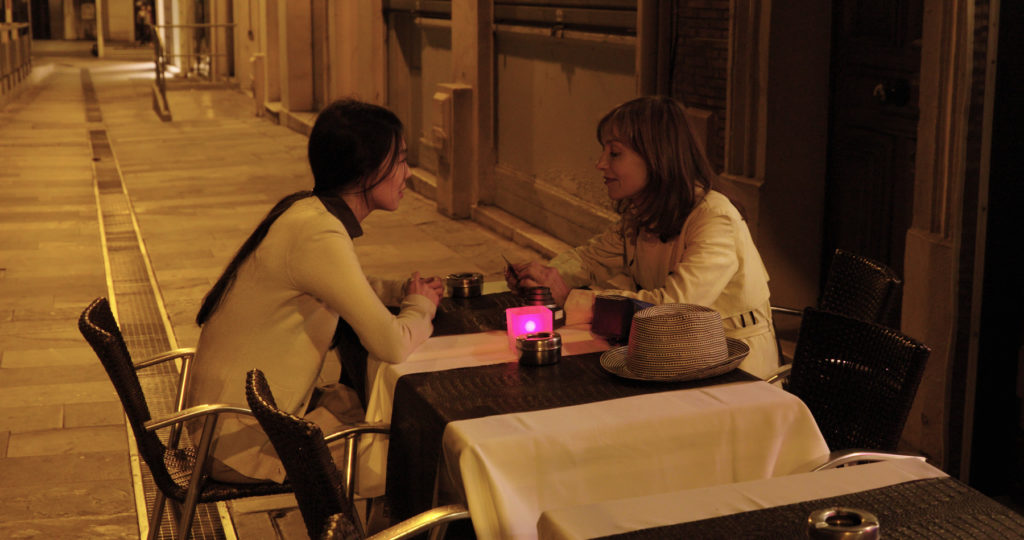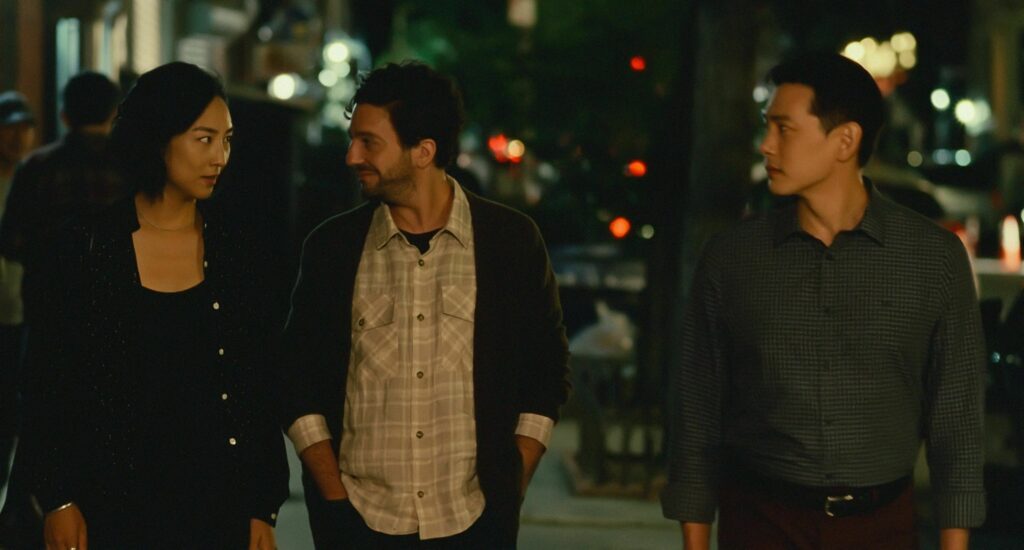
Past Lives is a profound romance, with one evolving relationship, and then a second, with the lives, loves and obsessions of three decent people swirling between two cultures over 24 years. The character-driven screenplay is a triumph for writer-director Celine Song in her first feature film.
The story of Past Lives begins 24 years ago in Korea, where a girl and a boy, 12-year-old classmates, are childhood best buddies. They have grown up as playmates, and are now each other’s first crush. The girl’s parents permanently relocate the family to Canada, and the two kids lose touch.
Twelve years later, the girl has grown into Nora (Greta Lee), a budding playwright in New York. The boy, Hae Sung (Teo Yoo) is an engineering student in Korea. Hae Sung tracks down Nora through social media, and the two have a reunion on Skype. The video calls became more frequent, and they kindle a tender and genuine adult relationship. They are becoming so close that it’s frustrating to not be geographically together, but they each have committed to career plans; she is beginning a writing fellowship in New York, and he’s about to go learn Mandarin in China. Nora recognizes that they are slipping into a love that is impractical and would require a major sacrifice by one of them – and she ends the calls.
Another twelve years pass, and Nora is still living in New York, but with her husband Arthur (John Magaro). Hae Sung is visiting New York and Nora arranges to meet him. When they finally meet again face-to-face, Nora learns what she may have suspected – the sole reason for Hae Sung’s visit is to see her. This meeting, awaited for 24 years, is clearly emotionally loaded for him; is it loaded for her as well?
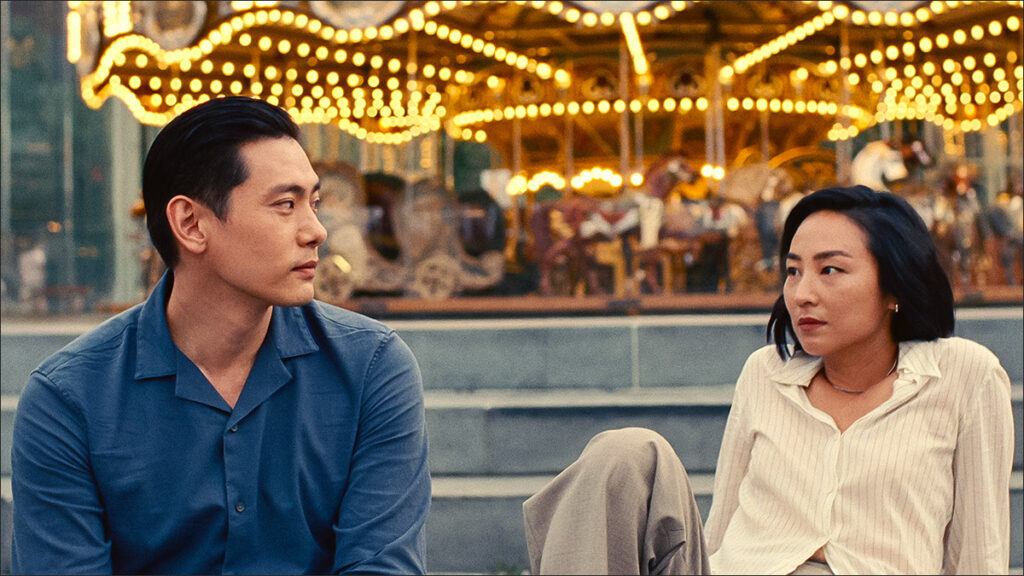
Now Nora has two men who want her, and she’s married to one of them. To describe Past Lives as a love triangle might be technically correct but would mislead you, because Past Lives is so specific, authentic and refreshing that it defies the conventions of the form. That we are so often surprised by Song’s movie is probably a telling comment on how we have been conditioned by insipid, shallow and inauthentic movie romances.
According to the conventions of Hollywood, Nora would run off with her soulmate – but which guy is that, exactly? It’s not quite the choice between Rick Blaine or Victor Laszlo, either. Each guy can give her something the other cannot. Each guy understand aspects of her that the other cannot. Nora describes Hae Sung to Arthur with “He’s so Korean“, and it’s unclear to what extent Nora see this as a good or bad thing.
There’s nary a false note in either of Nora and Hae Sung’s reunions, and the final dialogue is PERFECT.
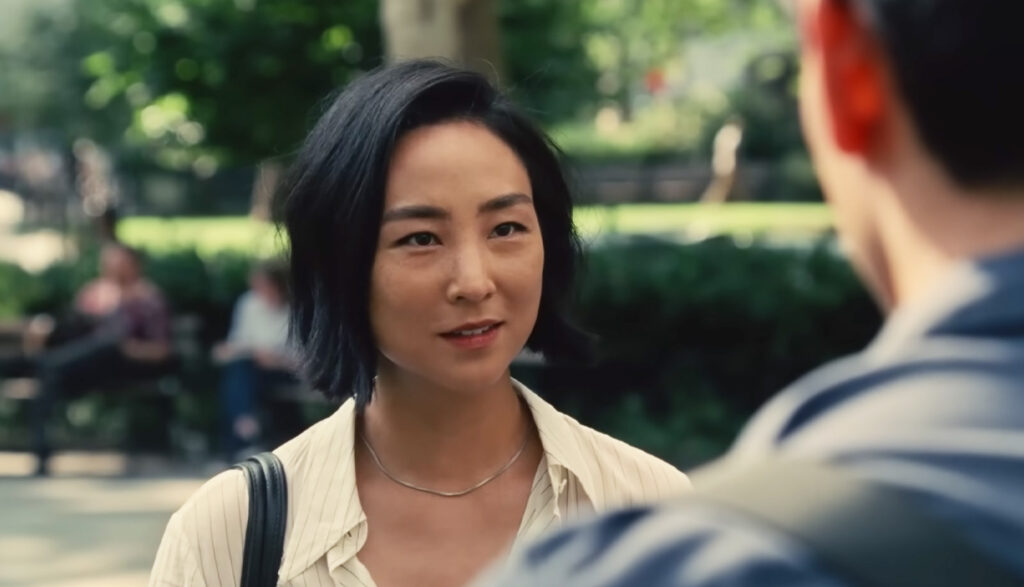
The performances do justice to the superb screenplay. Greta Lee plays Nora, who is the most central character (because she must choose between the others). Lee’s Nora is usually reserved and contained with others, sometimes even a cipher, but Lee is still able to convey Nora’s thinking and feeling.
Teo Yoo’s plays Hae Sung as an obsessive who ultimately evolves the most of any character. To Hae Sung, Nora is an object of fantasy for decades, and then he must see her as a person. There’s a scene at a carousel where Nora wants Hae Sung to speak to his feelings, and heartbreakingly, his cultural upbringing just won’t let him do it.
The most extraordinary performance is by John Magaro, an actor I had seen in The Big Short, The Many Saints of Newark and 18 1/2 without any appreciation that he was capable of work like this. Who wouldn’t be threatened when your partner’s first crush shows up to woo her? And when they are next to you, speaking with each other in a language you can’t understand? Arthur knows that he has played his hand already, and can only wait for the other cards to be revealed to see if he has won or lost. If he acts out, he would only hurt his chances. As he puts on a mask of stoicism and civility, Magaro’s Arthur is practically vibrating with anxiety.
In a clever prologue, Celine Song begins her movie with unseen patrons at a New York City bar trying to figure out the back story between the three people grouped across the room – an Asian man, an Asian woman and a white guy. Indeed, the movie is about who those three people are to each other. Like her character Nora, Song was born in Korea, immigrated to Canada with her parents, and lives in New York City with her American writer husband.
Song seems to be saying that love is more than one’s own feelings of attraction and connection; love also requires knowing who the other person truly is and is not, which demands setting aside one’s own perspective to listen and observe empathetically.
Past Lives is one of the Best Movies of 2023 – So Far, and is currently the best film I’ve seen this year.


